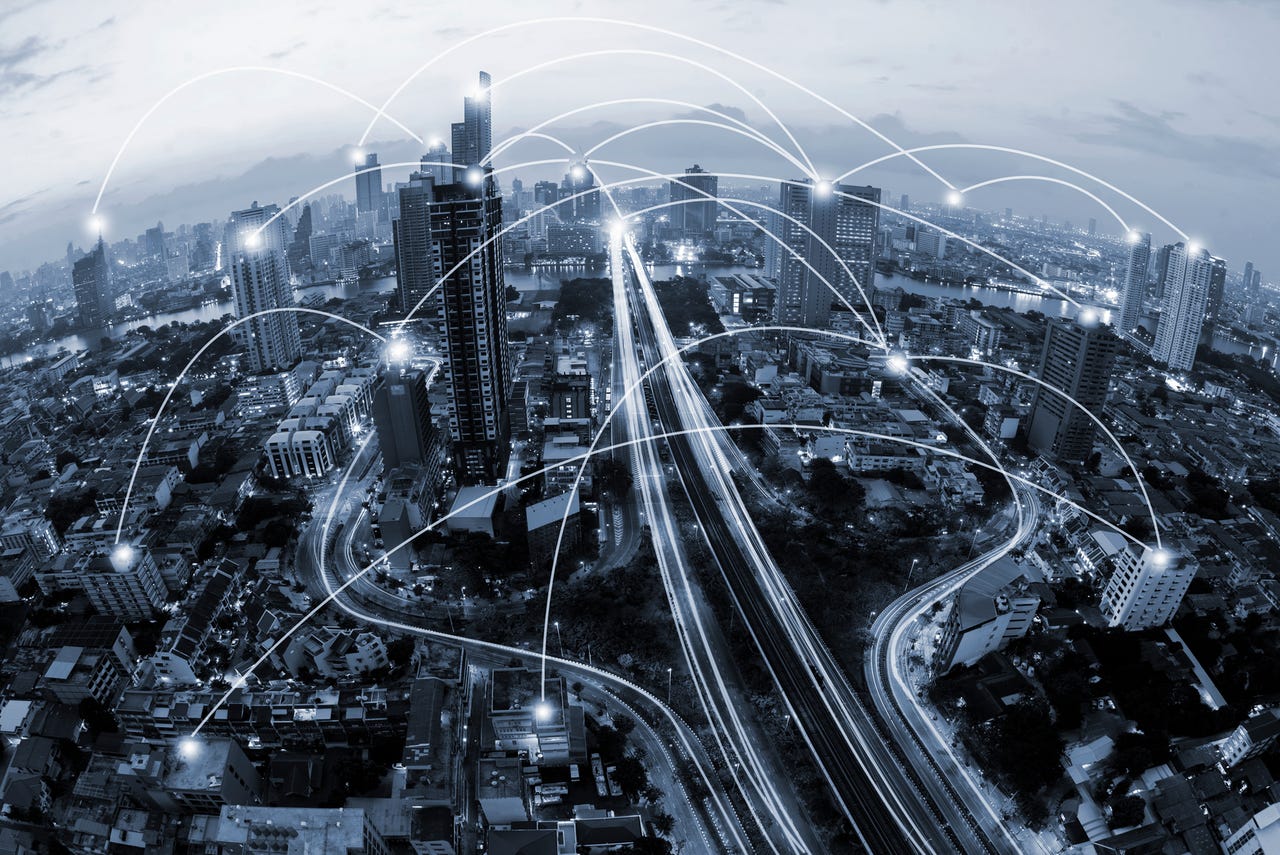The path to becoming a gigabit city


Many cities recognize the value of becoming a gigabit city, which means that ultra-high-speed broadband is available citywide at speeds of 1 gigabit per second (1Gbps) or faster. This makes it easier for citizens to access the internet, and for businesses to thrive and expand. It's considered by many to be an essential component of smart city technology.
"'Smart city' is a journey of enabling technologies, and the foundation is fiber internet," said Ted Smith, the former chief innovation officer for the city of Louisville, Ky., which is an upcoming Google Fiber city.
Grace Simrall, the new chief of civic innovation for Louisville, said, "Smart cities are connected cities, and gigabit connectivity will provide significant infrastructure in terms of bandwidth and speed to boost our smart city efforts, and to allow us to expand our dreams for the future."
Google Fiber announced last year that Louisville is on its list to receive ultra-high-speed broadband. Soon after Google's announcement, AT&T filed a lawsuit to stop Google and other ISPs from piggybacking onto existing utility poles owned by AT&T in Louisville; the lawsuit is still pending. AT&T already offers ultra high-speed broadband to some of its Louisville residential customers, and Google Fiber would be a direct competitor. Simrall said she couldn't comment on pending litigation.
However, in the face of layoffs announced by Google this week, Google Fiber chief Craig Barratt said in a blog post that he is stepping down as CEO of the Alphabet-owned ISP, and Google Fiber is "going to pause our operations and offices while we refine our approaches" for "most" of the potential Google Fiber cities where they've been in exploratory discussions. Google Fiber already offers ultra-high-speed internet service in eight metro areas and is committed to building in another four, including Louisville.
Barratt said in the blog post, "In terms of our existing footprint, in the cities where we've launched or are under construction, our work will continue."
After Google's announcement on Tuesday evening, a Louisville Metro Government spokesperson said, "We are continuing our work with Google Fiber. Tonight's announcement by Google does not impact Louisville."
Other Louisville areas ISPs that provide gigabit service include Windstream, Level 3 Communications, Time Warner Cable, and BluegrassNet, but these are mostly providing the service to businesses. AT&T is the first ISP in the area to provide ultra-high-speed broadband to residential customers, Simrall said.
"As Mayor [Greg] Fischer said last year, gigabit-speed internet has the potential to impact all parts of our city. It will be transformative for citizens at home, work, and play, and keep our city competitive in business attraction and retention," Simrall said.
Regardless of the politics involved, installing gigabit broadband technology takes planning and direction.
Hugh Miller, chief technology officer for the City of San Antonio, Texas, spoke at the Smart Cities Week conference in Washington, D.C. in late September. San Antonio began offering high-speed internet in 2005, and is now in the process of becoming a Google Fiber city to amp up speeds and attract more businesses to the area.
"Broadband is a critical utility that is the same as power or water. If you don't have it, you're not going to advance families, individuals, and so on, in digital literacy," Miller said.
The city is continuing to create new ways to advance the use of high-speed broadband to bring in new business. It's providing remote education and medical services online, as well as allowing residents who live in remote areas to handle simple court cases online.
"There are places where businesses want to function in a modern day format, and they don't have enough bandwidth. The bandwidth necessary to do the things people want to do, whether rural or urban, is going to be continually demanding on broadband," Miller said.
In the near future, ultra-high-speed broadband is going to be an expectation of residents in any city, he said.
"Gigabit-type communities open doors for us. That expectation is going to be high-speed broadband. The generation coming up has grown up with that. Their expectation of where we need to go is so far than where we're able to go today," Miller said.
Sometimes new policies need to be put in place before ultra-fast broadband can be installed, said Anne Schwieger, broadband and digital equity advocate for the Department of Innovation and Technology in Boston, Mass., which is adding new or revamped policies and processes to encourage private investment in broadband infrastructure.
"Broadband functions as a utility, but it is not regulated as a utility. As a result, a city government doesn't have a lot of authority to dictate buildout and rates," Schwieger said.
By adding policies to better regulate rates and buildout, it will enable more additional residents to be able to afford broadband, which Schwieger said has operated as a monopoly in many cities.
Louisville city officials haven't given a date for Google Fiber's completion in the area, but Simrall said, "Ultra-high-speed internet connections means Louisville's businesses can think even bigger for expanding their existing enterprises. It opens up new, undiscovered opportunities for Louisville's entrepreneurs and startups. For citizens, it means the innovations in smart home technology and entertainment will be delivered directly into their homes."
See also:
- Google Fiber pivots: What it means for the future of gigabit internet (TechRepublic)
- Google's Fiber lottery: Predicting who's next and how Google picks winners (TechRepublic)
- AT&T goes to war with Google Fiber in Louisville: Why Ma Bell could win and what it would mean (TechRepublic)
- Google Fiber pauses expansion, CEO steps down (ZDNet)
- Comcast, Time Warner take on Google Fiber in Kansas City; can the incumbents compete? (TechRepublic)